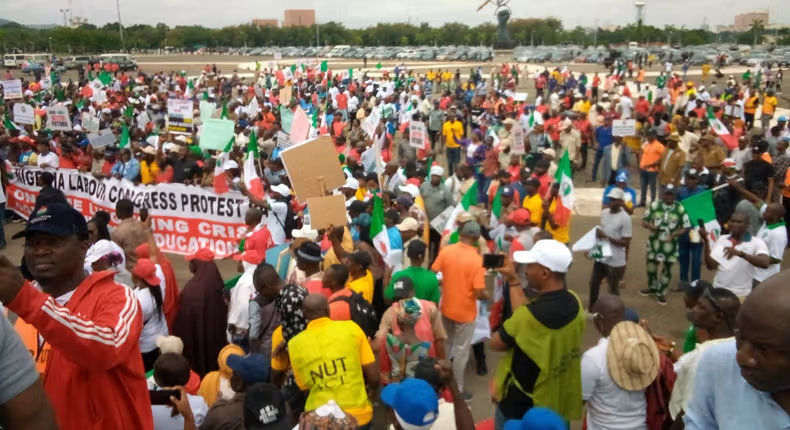The Campaign for Democratic and Workers’ Rights (CDWR) in Nigeria has urged Organised Labour to consider declaring a nationwide strike over the minimum wage and the recent increase in electricity tariffs. CDWR is calling on the Nigeria Labour Congress (NLC) and the Trade Union Congress of Nigeria (TUC) to initiate a 48-hour general strike and mass protest to demand a minimum wage of at least ₦200,000 and the reversal of all anti-poor policies.
Chinedu Bosah, the National Publicity Secretary of CDWR, emphasized the need for decisive action due to the deadlock in minimum wage negotiations between labor representatives and the government/private sector. He highlighted the recent successful mass protest in Kenya, which led to the withdrawal of a contentious policy, as a source of inspiration for Nigerians to force the government to reverse harmful policies.
“The mass protest of mostly young people has just forced the Ruto-led government in Kenya to withdraw the IMF/World Bank-inspired tax increment policy. This example shows that it is also possible for Nigerian working people and youth to force the Tinubu-led government to reverse the prices of petroleum products, electricity tariffs, fee hikes in public schools, and all other neo-liberal capitalist policies, policies which would give some immediate respite to most Nigerians,” Bosah stated.
CDWR also advocated for an automatic adjustment of the minimum wage in line with inflation and rising living costs to prevent wages from falling behind the poverty line. They emphasized that minimum wage adjustments should not wait for four or five years but should be aligned with the rate of inflation and rising costs of living.
The CDWR acknowledged the challenges in persuading the capitalist elite to agree to and implement these demands but emphasized the importance of a serious struggle to secure these vital concessions.
The call to action by CDWR reflects the ongoing economic hardships faced by many Nigerians, as well as the urgent need for policies that address the increasing cost of living and ensure economic justice for workers.

